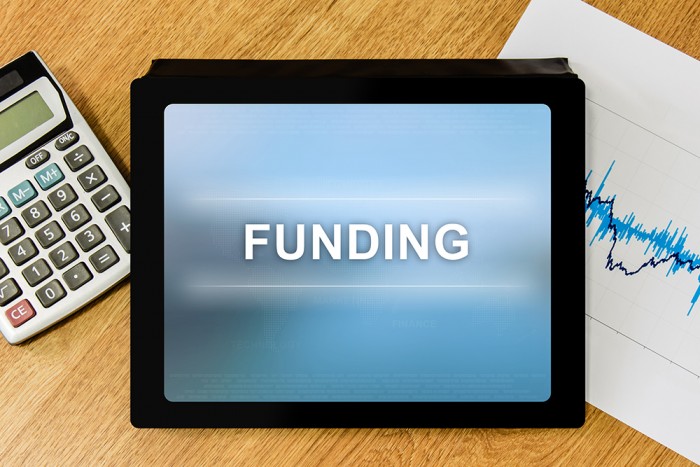The Centers for Medicare & Medicaid Services (CMS) has introduced the Innovation in Behavioral Health (IBH) Model to enhance integration in behavioral health. This model is designed to improve care quality, access, and outcomes for individuals with mental health conditions and substance use disorders under Medicaid and Medicare. Community-based behavioral health practices will form interprofessional care teams to address behavioral and physical health, including health-related social needs. The IBH Model uses a “no wrong door” approach, providing access to all services, and emphasizes building health information technology capacity. The model is scheduled to launch in Fall 2024 and will operate for eight years in up to eight select states. For more information, visit the IBH Model web page, where you can find frequently asked questions, access a fact sheet on the IBH Model, and explore a fact sheet on the accomplishments of the HHS Roadmap for Behavioral Health Integration.
Naomi Wallerson
OMHSAS 2024 Stakeholder Webinar Dates Updated
The Office of Mental Health and Substance Abuse Services (OMHSAS) has updated the meeting dates for the 2024 Stakeholder Webinars. The revised schedule is as follows:
- Thursday, April 18, 2024, 3:00 pm – 4:00 pm
- Thursday, July 18, 2024, 3:00 pm – 4:00 pm
- Thursday, October 17, 2024, 3:00 pm – 4:00 pm
Registration and webinar links will be provided closer to each meeting date.
DDAP and DCED Announce Funding for Recovery Houses
The Pennsylvania Department of Drug and Alcohol Programs (DDAP) and the Department of Community & Economic Development (DCED) have announced a nearly $300,000 grant opportunity for licensed recovery houses. The grants, capped at $50,000 each, aim to facilitate physical upgrades to ensure compliance with federal, state, and local laws, including the Americans with Disabilities Act of 1990. Eligible recovery house facilities can apply for health and safety enhancements, covering aspects such as demolition, rehabilitation, and environmental remediation. The application period will be open until funds are exhausted. For more details, including the application form, a comprehensive understanding of the competitive grant process, and federal application requirements, visit DDAP’s website.
Hazelden Betty Ford Foundation Presents Webinar on Enhancing SUD Care With ASAM Criteria
The Hazelden Betty Ford Foundation will present a free webinar titled “Elevating Whole Person SUD Care: How The Revised & Redesigned ASAM Criteria Improves Outcomes For Patients, Providers & Payers.” The webinar is scheduled from 1:00 pm – 2:00 pm on Tuesday, January 23, 2024. Expert speakers will share valuable insights into leveraging changes to improve patient outcomes and assist SUD provider organizations in increasing rates of insurance approval. Attendees will also get a first-hand look at the redesigned digital format, which was informed by addiction professionals for more effective clinical implementation. More details about the webinar are available online, and interested individuals can register here.
PA Partnerships for Children Releases 2023 State of Child Welfare Report
The Pennsylvania Partnerships for Children has published its 2023 State of Child Welfare Report, providing an analysis of child safety, placement, and permanency based on 2022 data. This 14th annual report focuses on Pennsylvania’s county-administered, state-supervised child welfare system, highlighting findings such as increases in child abuse reports in 2022. The report includes policy recommendations to address system challenges and improve outcomes for children and families. The full report, state-level data tables, and county tables can be accessed on the PA Partnerships for Children website.
RCPA would like to thank PA Partnerships for their partnership and shared advocacy on behalf of children and families in Pennsylvania.
Shapiro-Davis Administration Announces School Safety and Security Grant

The Shapiro-Davis Administration has announced a $155M School Safety and Security Grant for K-12 schools, with a focus on mental health support, as part of the 2023/24 state budget. The grants cover noncompetitive School Mental Health Grants, formula-based School Safety and Security Meritorious Grants, and Competitive School Safety and Security Grants. To apply and access information, including eligibility criteria, visit PCCD’s School Safety and Security web page. The application period ends on February 29, 2024. The funds aim to address basic safety needs and mental health services, as outlined in the Committee’s Revised Baseline Criteria Standards. For inquiries, please contact PCCD staff. Funding is facilitated through House Bill 301 in the 2023/24 state budget. For any other questions, contact RCPA Mental Health Policy Director Jim Sharp.












